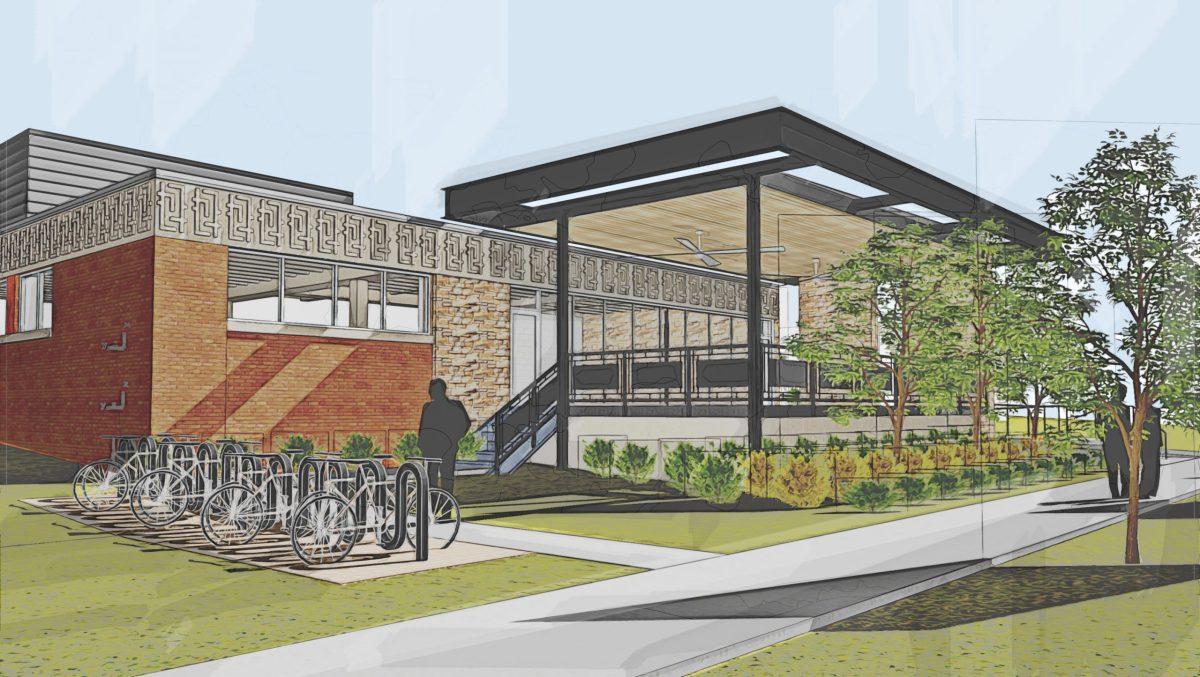Updated on Sunday, Sept. 18 at 10:30 p.m.
On Oct. 24, the elder care organization WesleyLife will break ground on a new Meals on Wheels headquarters to provide food and programming for older adults and veterans.
“We would love to get students involved in every element of this project,” said Shannon Draayer, WesleyLife’s director of health and wellbeing. “So if individuals are interested in learning about gardening or harvesting, we’ll have those opportunities in the hydroponic garden. Like we offer now, there will be opportunity to deliver Meals on Wheels [to older adults and veterans] throughout our community.”
The new building will allow WesleyLife to triple its meal production, replacing a current campus’s output of about 1,000 meals a day. It will also include a public-facing cafe/restaurant, Draayer said. Meals on Wheels meals cost $7.82, and funding assistance is available for eligible clients through partners.
Drake University’s former School of Education building at 3206 University Ave. will become WesleyLife’s new campus, which will include a hydroponic garden for fresh produce, a commercial kitchen and a community space where people “break down barriers around aging,” Draayer said.
Draayer and Sophia Ahmad, WesleyLife’s vice president of philanthropy, said the new campus is estimated to open in late 2023, and WesleyLife will break ground on Oct. 24. WesleyLife has raised $9.3 million of the projected $10 to over 11 million project costs, according to Ahmad. The new commercial kitchen will have key equipment that the old campus lacks, such as a dishwasher.
“We’ll have a higher quality meal, more efficiently produced and [the] ability to produce more meals,” Draayer said.
Ahmad said that WesleyLife delivers hot meals to the door and conducts a safety check that has saved between three and seven lives every year since 2016.
Besides the nutritional impact of Meals on Wheels, “the other thing we really like to talk about that I don’t know that everyone’s aware of is the social isolation…and really the community connection that comes from a friendly face and a visitor every day to your door,” Draayer said.
Drake community engagement director Ryan Arnold said that Drake has helped WesleyLife make connections in the neighborhood and is exploring ways to partner with the new campus.
Draayer said that Drake fraternities and sororities have delivered meals in the past, and WesleyLife has worked with the athletics department. She also said WesleyLife would love to partner with Drake’s Sprout Garden.
Draayer said WesleyLife envisions the space hosting events like guest lectures and special programs related to students’ classwork. WesleyLife has also talked with Drake’s Osher Lifelong Learning Institute and can see some of their programming happening in the new headquarters.
AARP state director Brad Anderson said in a statement that the project will connect “people of all age cohorts through experiential arts, culture and educational programming.”
“There will be basically what is an event space, or gathering space, for different community groups, to come together, break down barriers around aging and just have some opportunities to connect, to learn and to have some fun,” Draayer said.
A $1,050,000 grant from a Drake philanthropist served as the “catalyst” for the project, Draayer said. Arnold said the funds enabled Drake to donate the old Drake School of Education building to WesleyLife.
Suzie Glazer Burt, co-chair of Drake University’s $225 million fundraising campaign, “The Ones,” donated the funds in association with the campaign’s “University of All” initiative, Arnold said. The initiative aims to attract students in all stages of life.
“At the heart of our community is collaboration, and I am happy to foster this connection with WesleyLife and Drake University that will ultimately impact thousands of vulnerable older adults and veterans,” Burt said in WelseyLife’s statement.







